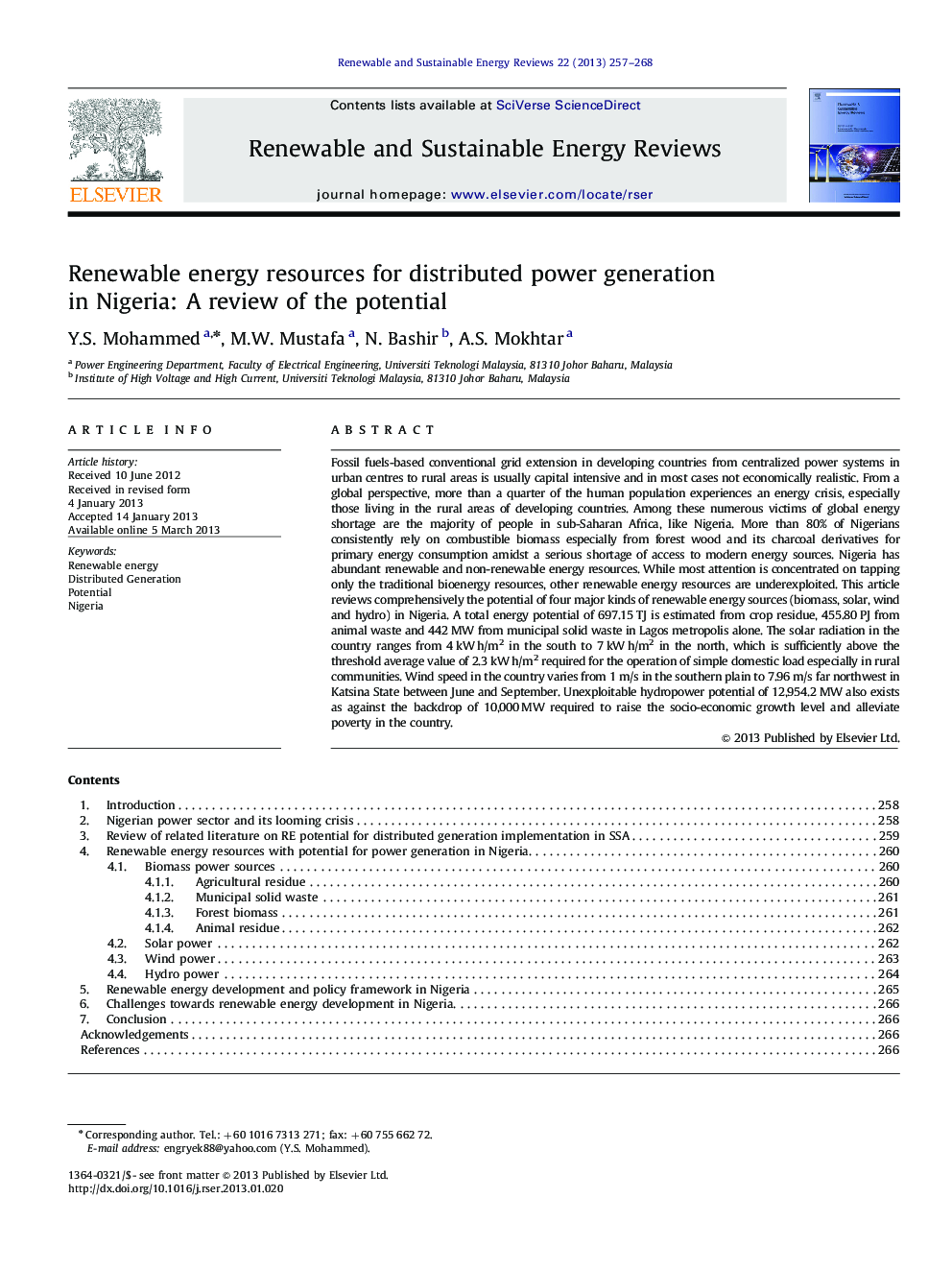| کد مقاله | کد نشریه | سال انتشار | مقاله انگلیسی | نسخه تمام متن |
|---|---|---|---|---|
| 8122041 | 1522363 | 2013 | 12 صفحه PDF | دانلود رایگان |
عنوان انگلیسی مقاله ISI
Renewable energy resources for distributed power generation in Nigeria: A review of the potential
ترجمه فارسی عنوان
منابع انرژی قابل تجدید برای تولید برق توزیع شده در نیجریه: بررسی احتمالی
دانلود مقاله + سفارش ترجمه
دانلود مقاله ISI انگلیسی
رایگان برای ایرانیان
کلمات کلیدی
انرژی تجدید پذیر، نسل توزیع شده، پتانسیل، نیجریه،
موضوعات مرتبط
مهندسی و علوم پایه
مهندسی انرژی
انرژی های تجدید پذیر، توسعه پایدار و محیط زیست
چکیده انگلیسی
Fossil fuels-based conventional grid extension in developing countries from centralized power systems in urban centres to rural areas is usually capital intensive and in most cases not economically realistic. From a global perspective, more than a quarter of the human population experiences an energy crisis, especially those living in the rural areas of developing countries. Among these numerous victims of global energy shortage are the majority of people in sub-Saharan Africa, like Nigeria. More than 80% of Nigerians consistently rely on combustible biomass especially from forest wood and its charcoal derivatives for primary energy consumption amidst a serious shortage of access to modern energy sources. Nigeria has abundant renewable and non-renewable energy resources. While most attention is concentrated on tapping only the traditional bioenergy resources, other renewable energy resources are underexploited. This article reviews comprehensively the potential of four major kinds of renewable energy sources (biomass, solar, wind and hydro) in Nigeria. A total energy potential of 697.15Â TJ is estimated from crop residue, 455.80Â PJ from animal waste and 442Â MW from municipal solid waste in Lagos metropolis alone. The solar radiation in the country ranges from 4Â kWÂ h/m2 in the south to 7Â kWÂ h/m2 in the north, which is sufficiently above the threshold average value of 2.3Â kWÂ h/m2 required for the operation of simple domestic load especially in rural communities. Wind speed in the country varies from 1Â m/s in the southern plain to 7.96Â m/s far northwest in Katsina State between June and September. Unexploitable hydropower potential of 12,954.2Â MW also exists as against the backdrop of 10,000Â MW required to raise the socio-economic growth level and alleviate poverty in the country.
ناشر
Database: Elsevier - ScienceDirect (ساینس دایرکت)
Journal: Renewable and Sustainable Energy Reviews - Volume 22, June 2013, Pages 257-268
Journal: Renewable and Sustainable Energy Reviews - Volume 22, June 2013, Pages 257-268
نویسندگان
Y.S. Mohammed, M.W. Mustafa, N. Bashir, A.S. Mokhtar,
